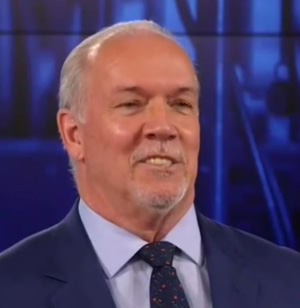
Friday June 11, 2021 | VICTORIA, BC
by Jalen C Codrington and Mary P Brooke, Editor | Island Social Trends
The BC government is undertaking a major shift to compulsory certification for trades, which it says will strengthen economic recovery and support higher-paying, more stable jobs. The government will focus on 10 job classifications within mechanical, electrical, and automotive industries.
Today June 11, Premier John Horgan, Advanced Education and Skills Training Minister Anne Kang, and Parliamentary Secretary for Skills Training Andrew Mercier made the announcement, with a focus on public engagement starting right away.
“A skilled workforce is needed to get out of the recovery,” said Premier Horgan today. He noted that most trades start and complete a job but that certification will help them achieve mobility in the sector to more worksites and job placements.
Horgan also emphasized that the BC government has spent the past two years working on and shaping this approach to trades certification, in a way that will help workers, not hinder employers, and contribute to an economic boost.
Mechanical, Electrical and Automotive:
The program starts with trades that have the highest existing levels of certified workers, those being mechanical and electrical.

The 10 initial trades designated for skilled trades certification are:
- Mechanical: gasfitter Class A and B, steamfitter/pipefitter, refrigeration and air conditioning mechanic, and sheet metal worker.
- Electrical: powerline technician, industrial electrician, and construction electrician.
- Automotive: heavy-duty equipment technician, automotive service technician, and autobody and collision technician.
Horgan says he recognizes it will be a significant change for workers, and won’t happen overnight. Certification will be required by 2023 for electrical and mechanical trades, while certification for automotive trades will be required by 2025.
“Getting it Right”:
Premier Horgan said that the process toward certification for all trades will unfold in various phases, in order to ‘get it right’.
The public is currently encouraged to participate in an online survey at engage.gov.bc.ca/skilledtrades. After the public participation phase, individuals will have one year to either register as an apprentice, or challenge an exam to certify as a journeyperson. The government is aiming to introduce new legislation next spring.

“Skilled trades certification recognizes the professionalism of tradespeople throughout B.C., and ensures equity-deserving groups and every person who wants a rewarding career in the trades can access the highest level of education and training,” said Minister Kang.
Approximately 73,000 job openings are expected in the trades in B.C. through to 2029. With 77% of these openings replacing retiring trades workers, skilled trades certification will help ensure the success of the individuals who will fill these roles, while continuing to build prestige around trades for those already working in them.
Getting back to standards:
The certification requirement was removed in 2003 under former Premier Campbell’s government, making BC the only province in Canada not requiring full accreditation for tradespeople. Horgan said the changes under the BC Liberals (who were in office during 2001 to 2016) discouraged people from completing their Red Seal. An estimated 100,000 workers are currently not fully certified.
The decision to reintroduce compulsory certification was based on recommendations from a stakeholder advisory group that includes representatives from industry associations, labour, post-secondary institutions, indigenous skills trainers, and the Industry Training Authority (ITA).
Public engagement:

Today Parliamentary Secretary for Skills Training Andrew Mercier (who is the MLA for Langley, newly elected in October 2020) was keen about the role of public and industry engagement which will explore:
- helping support current workers to become certified while standardizing skills at a high level;
- identifying and creating implementation supports for employers during economic recovery; and
- creating multiple pathways to completion for all workers, so no one is left behind.
The new public input portal is live now on the BC Government Engagement website at BC Skilled Trades Certification Survey or visit the Skilled Trades Certification intro page.
The public engagement is open to 4 pm on August 31, 2021.




